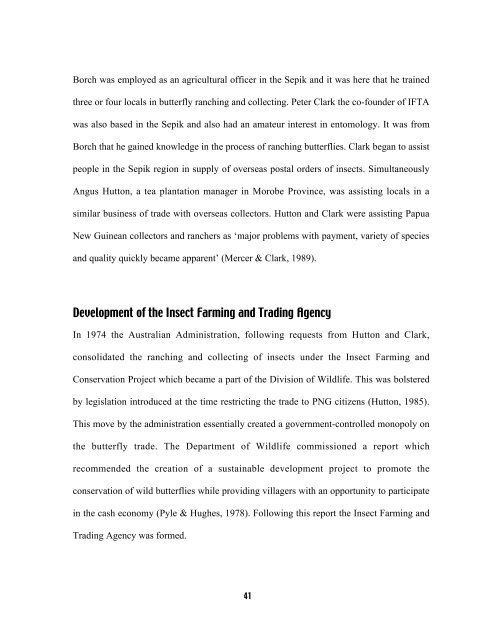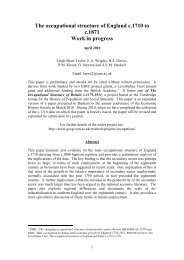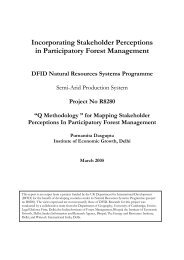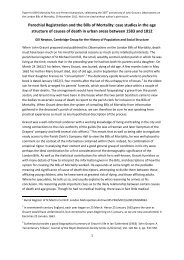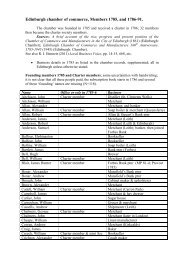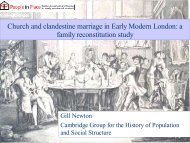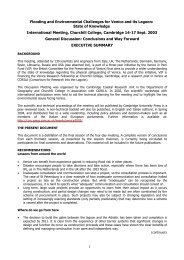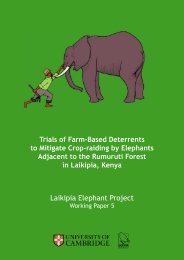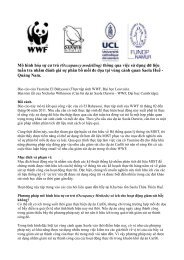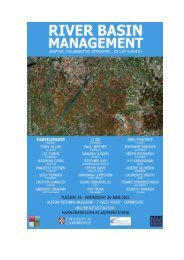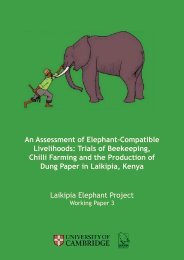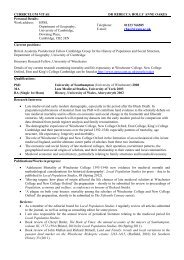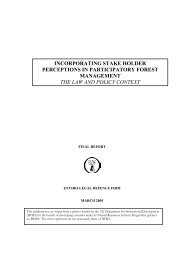Rob Small's Masters Thesis: Uptake and the success of insect ...
Rob Small's Masters Thesis: Uptake and the success of insect ...
Rob Small's Masters Thesis: Uptake and the success of insect ...
You also want an ePaper? Increase the reach of your titles
YUMPU automatically turns print PDFs into web optimized ePapers that Google loves.
Borch was employed as an agricultural <strong>of</strong>ficer in <strong>the</strong> Sepik <strong>and</strong> it was here that he trained<br />
three or four locals in butterfly ranching <strong>and</strong> collecting. Peter Clark <strong>the</strong> co-founder <strong>of</strong> IFTA<br />
was also based in <strong>the</strong> Sepik <strong>and</strong> also had an amateur interest in entomology. It was from<br />
Borch that he gained knowledge in <strong>the</strong> process <strong>of</strong> ranching butterflies. Clark began to assist<br />
people in <strong>the</strong> Sepik region in supply <strong>of</strong> overseas postal orders <strong>of</strong> <strong>insect</strong>s. Simultaneously<br />
Angus Hutton, a tea plantation manager in Morobe Province, was assisting locals in a<br />
similar business <strong>of</strong> trade with overseas collectors. Hutton <strong>and</strong> Clark were assisting Papua<br />
New Guinean collectors <strong>and</strong> ranchers as ‘major problems with payment, variety <strong>of</strong> species<br />
<strong>and</strong> quality quickly became apparent’ (Mercer & Clark, 1989).<br />
Development <strong>of</strong> <strong>the</strong> Insect Farming <strong>and</strong> Trading Agency<br />
In 1974 <strong>the</strong> Australian Administration, following requests from Hutton <strong>and</strong> Clark,<br />
consolidated <strong>the</strong> ranching <strong>and</strong> collecting <strong>of</strong> <strong>insect</strong>s under <strong>the</strong> Insect Farming <strong>and</strong><br />
Conservation Project which became a part <strong>of</strong> <strong>the</strong> Division <strong>of</strong> Wildlife. This was bolstered<br />
by legislation introduced at <strong>the</strong> time restricting <strong>the</strong> trade to PNG citizens (Hutton, 1985).<br />
This move by <strong>the</strong> administration essentially created a government-controlled monopoly on<br />
<strong>the</strong> butterfly trade. The Department <strong>of</strong> Wildlife commissioned a report which<br />
recommended <strong>the</strong> creation <strong>of</strong> a sustainable development project to promote <strong>the</strong><br />
conservation <strong>of</strong> wild butterflies while providing villagers with an opportunity to participate<br />
in <strong>the</strong> cash economy (Pyle & Hughes, 1978). Following this report <strong>the</strong> Insect Farming <strong>and</strong><br />
Trading Agency was formed.<br />
41


